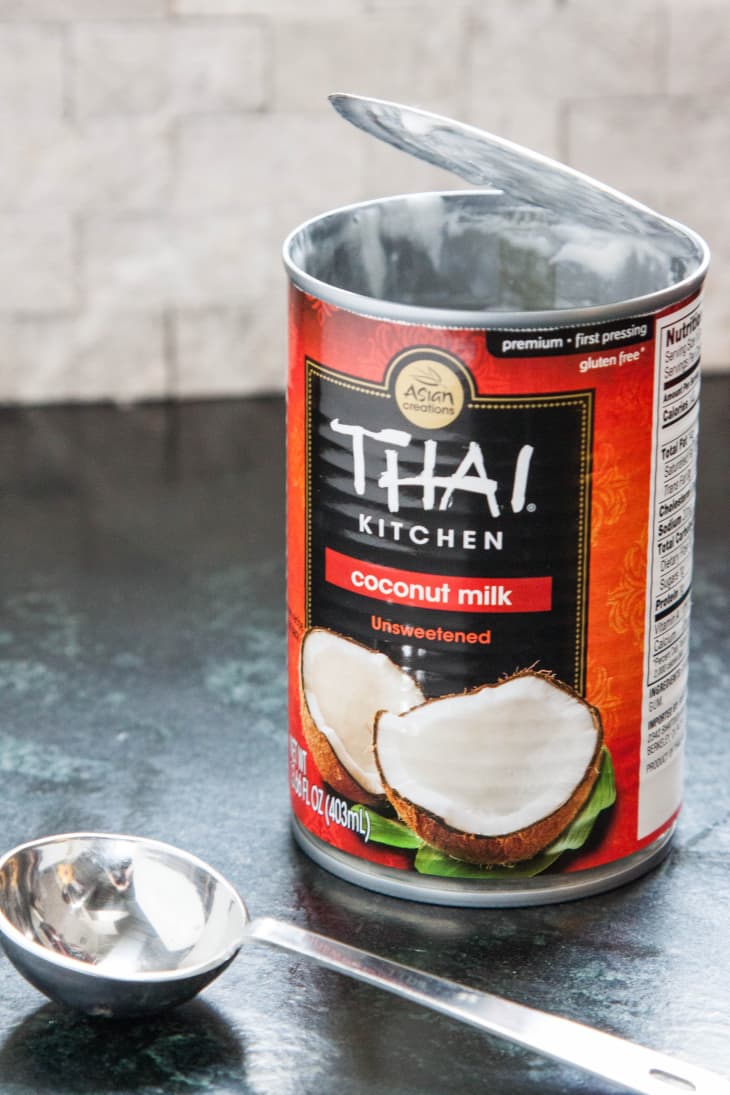

I am Thai American, and coconut milk is integral to my life. I go through at least a dozen cans a month, and routinely make curries, desserts, and drinks with this creamy, sweet nectar that my family has likened to gold. I used to look for two things when buying coconut milk: whole coconuts and minimal additives. Now I have a third requirement: no monkey labor.
Editors’ note: The following story includes accounts of animal abuse and links to graphic images.
Late last year, I got a concerning call from my grandfather. He’d seen a disturbing investigation conducted by PETA (People for the Ethical Treatment of Animals) on Facebook about the inhumane treatment and involvement of monkeys in Thailand’s coconut industry — a major global supplier of coconut products (exporting $341 million worth of coconut milk in the months of January 2024 to October 2024 alone). According to the report, young monkeys are taken from their mothers, kept in chains, brutally trained, and forced to climb trees to harvest coconuts used in products like coconut milk, meat, flour, and oil.
It was a heartbreaking discovery for both of us. “We’ve got to check the brands that we buy,” he said, to make sure that they’re free of monkey labor (and to steer clear of the ones that support these inhumane practices).
To learn more, I chatted with Jennifer, an investigator at PETA who’s been actively studying monkey labor in Thailand for the past six years (and contributed to the report mentioned above). The issue first came to light in 2019, according to Jennifer, when her team traveled across the country to document conditions on the ground after getting a tip about potential animal abuse.
“We found that monkeys are taken from their mothers at a young age and trained in facilities to harvest coconuts,” she said. “After training, they were made to compete in coconut-picking contests. Some coconut producers buy the winners to live and work on farms in terrible conditions.”
It’s shocking to even think about, and the abuse doesn’t stop there. She added, “The monkeys are forced to wear metal collars and are often chained or tethered for long periods. The work is dangerous, and many suffer injuries.”
After notifying the Thai government about the prevalence of monkey labor on certain farms, officials claimed they would take action. And they have — just not in the way you’d expect. According to Jennifer, PETA’s ongoing investigations show that abuse remains widespread and industry insiders are actively concealing the use of monkey labor in the coconut supply chain. Some are claiming their products are made with “monkey-free labor” without proof.
As you can imagine, for Jennifer and her team it’s been frustrating. “Instead of working toward a meaningful transition to monkey-free harvest methods — like planting shorter trees whose coconuts are easier to reach — farms, brokers, manufacturers, and the Thai government are all working to mislead consumers,” she says. (Thailand’s Official Product Exporter did not respond to multiple requests for comment.)

How to Know if Your Coconut Milk Is Monkey Labor-Free
“If a brand isn’t on this list, they can’t guarantee their coconuts were sourced without monkey labor,” explains Jennifer. “We update the list daily, and anyone can reach out to us at any time to ask about a specific brand’s producing practices.”
It’s important to emphasize that not all Thai coconut products are made with monkey labor. In fact, plenty aren’t. Thai-harvested brands Native Forest (one of my favorites), Whole Foods 365, and A Taste of Thai are all on PETA’s good list, as are ones produced in other countries (including Indonesia and Brazil) like Trader Joe’s and Goya, among many more.
I hope that the cruel practice of exploiting vulnerable monkeys will end. In the meantime, I’ll continue to send a message to companies by refusing to buy coconut products from brands that support these inhumane practices like Chaokoh (which Costco actually dropped as a supplier in 2020) and Tropicana.
Did your favorite coconut milk brand make the list? Tell us about it in the comments below.
The Weekly Checkout
Sign up for The Weekly Checkout to get the most up-to-date grocery news, tips, and highlights.